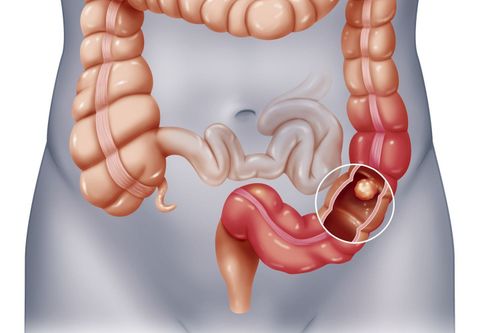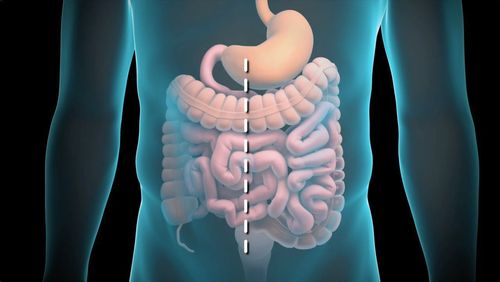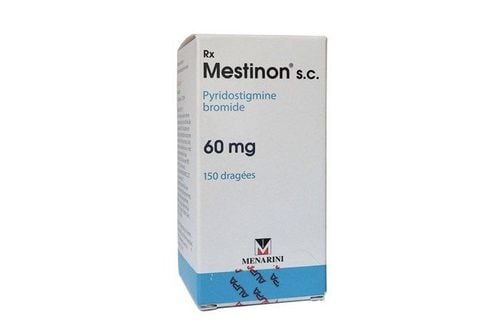This is an automatically translated article.
The article is expertly consulted by MSc Duong Xuan Loc - Gastroenterologist - General Surgery Department - Vinmec Danang International General Hospital.The gut is one of the most important parts of the human body. When intestinal obstruction, the disease will progress to a dangerous level in a short time if it is not detected and intervened in time. Therefore, learning about the treatment options for intestinal obstruction is extremely necessary.
1. Classification of bowel obstruction
Intestinal obstruction is not a common disease, but the level of danger it can cause to the patient cannot be subjective. In medical terms, intestinal obstruction is simply understood as the suspension of the circulation of substances contained in the intestinal lumen, causing them to accumulate in the patient's body and not be able to escape.Bowel obstruction can occur in many different ages, sexes and has many causes. Based on the cause, intestinal obstruction can be divided into two main groups as follows:
Functional bowel obstruction Patients with functional intestinal obstruction, also known as intestinal obstruction due to bowel movement disorders. To put it simply, normally, in order for the body to function properly, the intestines will have peristalsis to help push the substances in the intestinal lumen to move in one direction. However, with intestinal obstruction, these contractions are lost and there is no harmony with each other. In the case of patients with mechanical intestinal obstruction, surgical treatment of intestinal obstruction does not have a direct therapeutic effect.
Mechanical Intestinal Obstruction Patients with mechanical intestinal obstruction may be caused by a certain obstacle, surgical treatment of intestinal obstruction in this case can be resolved and the patient can be treated with surgery. department.
For mechanical intestinal obstruction, they will cause 2 types of disorders in patients: local disorders and systemic disorders.
2. The earliest warning symptom of bowel obstruction
Many patients who hear about intestinal obstruction are worried, do not know what to do when they have intestinal obstruction, if it is dangerous or not and how to treat intestinal obstruction. However, an extremely important thing affecting the outcome of treatment is to detect the disease in time. Patients often have the following symptoms:Abdominal pain, abdominal distension: Abdominal pain due to intestinal obstruction will last about 30 seconds and then go away and then again, the pain is spaced a few minutes apart if the location of the blockage is in the intestines. premature and about 15 - 30 minutes apart if the obstruction is in the colon . If left for a long time, the pain will appear with thicker and heavier frequency; Nausea, vomiting: Depending on the location of the blockage, the degree and nature of vomiting will be different. The more severe the obstruction, the sooner and more often the patient will vomit, this may cause the patient to fall into a state of dehydration and electrolyte loss; Constipation: This is the clearest sign that the patient has bowel obstruction and is the basis for the doctor to diagnose intestinal obstruction; Mild fever: May occur because the patient is dehydrated, infected with fluid stagnation above the obstruction.
3. How is bowel obstruction diagnosed?
If the patient is suspected of having an intestinal obstruction, the doctor will conduct a clinical examination, ask about the symptoms, and order the patient to perform tests to treat intestinal obstruction, including:X-ray of bowel obstruction: This This is a test that can help see trapped gas and the location of the bowel obstruction. However, for an accurate diagnosis, an X-ray of bowel obstruction is not always the most feasible method; CT scan: Can see more detailed images to identify the bowel obstruction; Ultrasound: This method is often used to identify intestinal obstruction in children; Contrast with Barium t Endoscopy.
4. What to do with bowel obstruction?
Treatment for intestinal obstruction depends on the severity of the disease. First, to treat intestinal obstruction for the patient, the doctor will perform surgical resuscitation: antibiotics, gastric tube placement and intravenous fluids to balance water and mineral salts.In the case of a patient with intestinal obstruction, it is necessary to perform rapid resuscitation, both suction and infusion to avoid causing intestinal damage. If the patient has a complete bowel obstruction, the doctor will prescribe surgery to release the blockage: remove the blockage, release the ligaments, remove the damaged intestine. In addition, in the case of intestinal obstruction due to tumor, the patient can undergo surgery to remove the tumor, make an colostomy or anastomosis by pass.
The principle of intestinal obstruction treatment requires a combination of internal medicine and surgery to correct systemic disorders to help patients be healthy enough for surgery, reduce complications and mortality after surgery. In particular, because intestinal obstruction can be a complication of many diseases and caused by many causes, it is not possible to have a general rule for surgical methods, but must be based on the cause of intestinal obstruction.
Intestinal obstruction if not treated quickly and promptly will cause many serious complications, even endangering the patient's life. As soon as symptoms appear, you should immediately go to a reputable medical facility for early examination and treatment. Vinmec International General Hospital is a high-quality medical facility in Vietnam with:
A team of highly qualified and experienced doctors: The doctors are Professors, PhDs, and Masters trained in Vietnam. Reputable, experienced and dedicated schools, especially a team of specialists in Gastroenterology, offer the most suitable treatment for intestinal obstruction for patients. The system of modern and new equipment such as ultrasound, CT, X-ray, barium contrast, flexible bronchoscope... The techniques are performed accurately, helping to minimize the complications. Complications when performing gastric tube technique such as: sores in the nasal mucosa - where the catheter is fixed, inflammation of the salivary glands, pneumonia. To be examined and treated with experienced gastroenterologists, please book an appointment at the website or contact Vinmec Health System nationwide.
Please dial HOTLINE for more information or register for an appointment HERE. Download MyVinmec app to make appointments faster and to manage your bookings easily.













